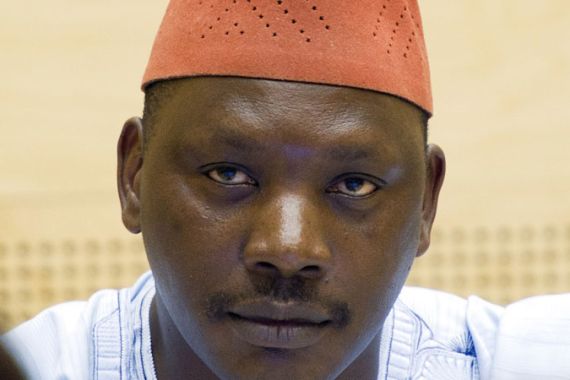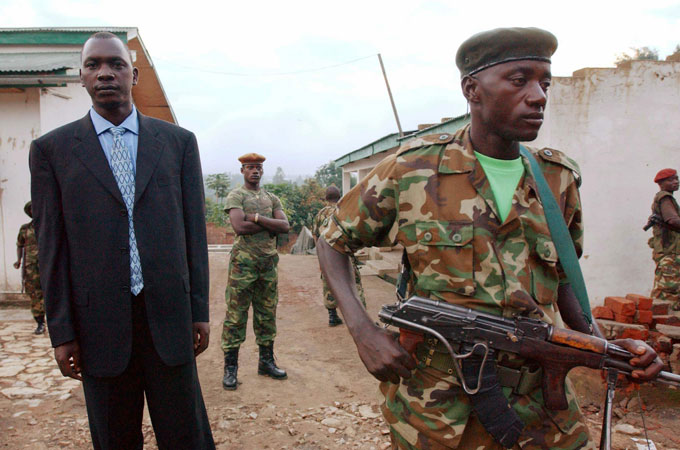Profile: DRC’s Thomas Lubanga
Former Congolese rebel leader convicted over recruitment and use of child soldiers during bloody ethnic conflict.

 |
| Thomas Lubanga, left, in front of his house in Bunia, Congo in 2003. [Maurizio Gambarini/EPA] |
Thomas Lubanga, a former rebel leader in the Democratic Republic of Congo (DRC), has become the first person to be convicted by the International Criminal Court in The Hague, Netherlands.
The 51-year-old was found guilty over the recruitment and use of child soldiers when he was head of the Union of Congolese Patriots (UPC) during the final years of DR Congo’s 1998-2003 war.
Lubanga was an official in the Rally for Congolese Democracy (RCD), which played a role in the eight-nation war that is considered one of the world’s bloodiest conflicts since World War Two.
In 2001, Lubanga founded UPC, and later left the RCD.
The UPC’s military wing, the Patriotic Forces for the Liberation of Congo (FPLC), fought a subconflict of the larger war in the gold-rich Ituri region, which for decades was a battlefield for ethnic tensions between the Lendu and Hema tribes. The UPC claimed to represent the Hema.
As in Rwanda, divisions between the ethnic groups can be traced back to the region’s era pf colonial rule, when Belgian colonialists were thought to favour the Hema over the Lendu and created disparities between the two.
From 2002-2003, rights groups say the FPLC, under the orders of Lubanga, executed about 800 Lendu civilians. They also accuse the FPLC of torture, rape and abducting children as young as 11 and forcing them to fight.
The Ituri conflict killed an estimated 60,000 people until most of the heavy fighting ended in 2003.
In March 2005, Lubanga was arrested by Congolese authorities in connection with the killing of nine Bangladeshi UN peacekeepers in Ituri one month earlier.
On February 10, 2006, the ICC issued an arrest warrant for Lubanga, charging him with war crimes.
After his arrest, Richard Decker, the director of the International Justice Programme at Human Rights Watch, said: “Thomas Lubanga’s arrest offers victims of the horrific crimes in Ituri some hope of seeing justice done at last.”
In the trial that opened in January 2009, prosecutors alleged that Lubanga’s role in the conflict was driven by a desire to maintain and expand his control over Ituri.
The charges against him included “enlisting and conscripting of children under the age of 15 years into the (FPLC) and using them to participate actively in hostilities in the context of an international armed conflict.”
Lubanga pleaded not guilty to the charges, but could now face life imprisonment.